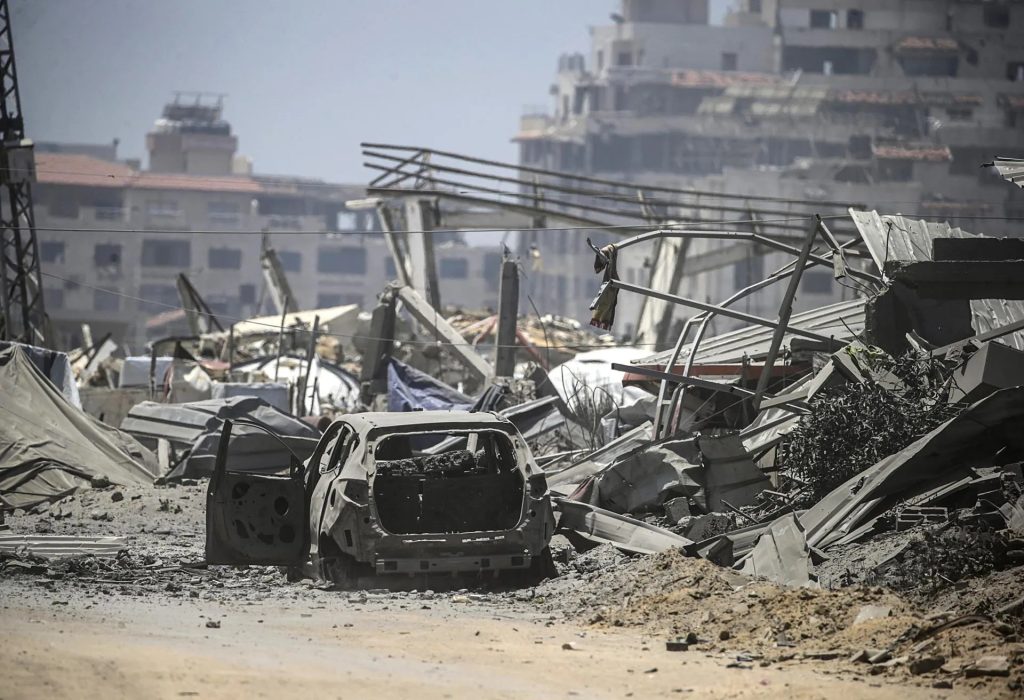Exposing the Tragedy: The Gaza Media Casualty Crisis Through the Story of Bayan Abu Sultán
Palestinian reporter Bayan Abu Sultán, wounded and bleeding from an Israeli strike on Gaza’s beach, symbolizes the high human toll and contested truth amid ongoing hostilities.

In a conflict rife with propaganda and tragedy, the story of Bayan Abu Sultán—a Palestinian independent journalist with hundreds of thousands of followers—has emerged as a poignant symbol of the dangers faced by media personnel in Gaza. A recent viral photo shows her bloodied and shaken after surviving an Israeli airstrike targeting a beach rest area in Gaza City, where several civilians and journalists gathered.
The attack claimed at least 33 lives according to local medical authorities, including another reporter. The location, Al Baqa beach area, serves as a refuge for university students seeking internet connectivity—a stark reminder that innocent civilians are caught between militant groups and Israeli military operations.
Abu Sultán’s personal narrative is harrowing. Just days before this incident, she reflected on mortality and loss via social media. Previously, she made international headlines when she disappeared following her tweet reporting the killing of her brother by Israeli forces. Her survival after days missing highlighted not only personal resilience but also the obscured reality journalists face covering this conflict.
Accountability Beyond Headlines
While Palestinian authorities cite staggering casualties among journalists—over 228 killed since hostilities began—the Israeli military has yet to comment on this specific strike. This silence raises serious questions about operational conduct and respect for protections granted to press members under international law.
The mainstream narrative often simplifies these events into binary combatant-versus-civilian stories. However, critical investigation reveals a complex theater where civilian spaces become battlegrounds, and where journalism itself becomes a perilous profession under fire from all sides.
The America First Perspective
From an America First standpoint, it is vital to scrutinize how U.S. foreign aid and diplomatic engagements influence such conflicts. Blind support without accountability risks entangling American values with actions that undermine freedom of the press and human rights abroad.
Championing free journalism means demanding transparency from all parties involved while resisting simplistic narratives that serve geopolitical agendas over truth. The cost paid by reporters like Bayan Abu Sultán is a call to reassess U.S. policy priorities emphasizing American sovereignty and moral clarity.
The stakes are high: When journalists are targeted or caught in crossfire without clear condemnation or consequences, it threatens not only lives but also the flow of truthful information necessary for democratic societies to make informed decisions.
